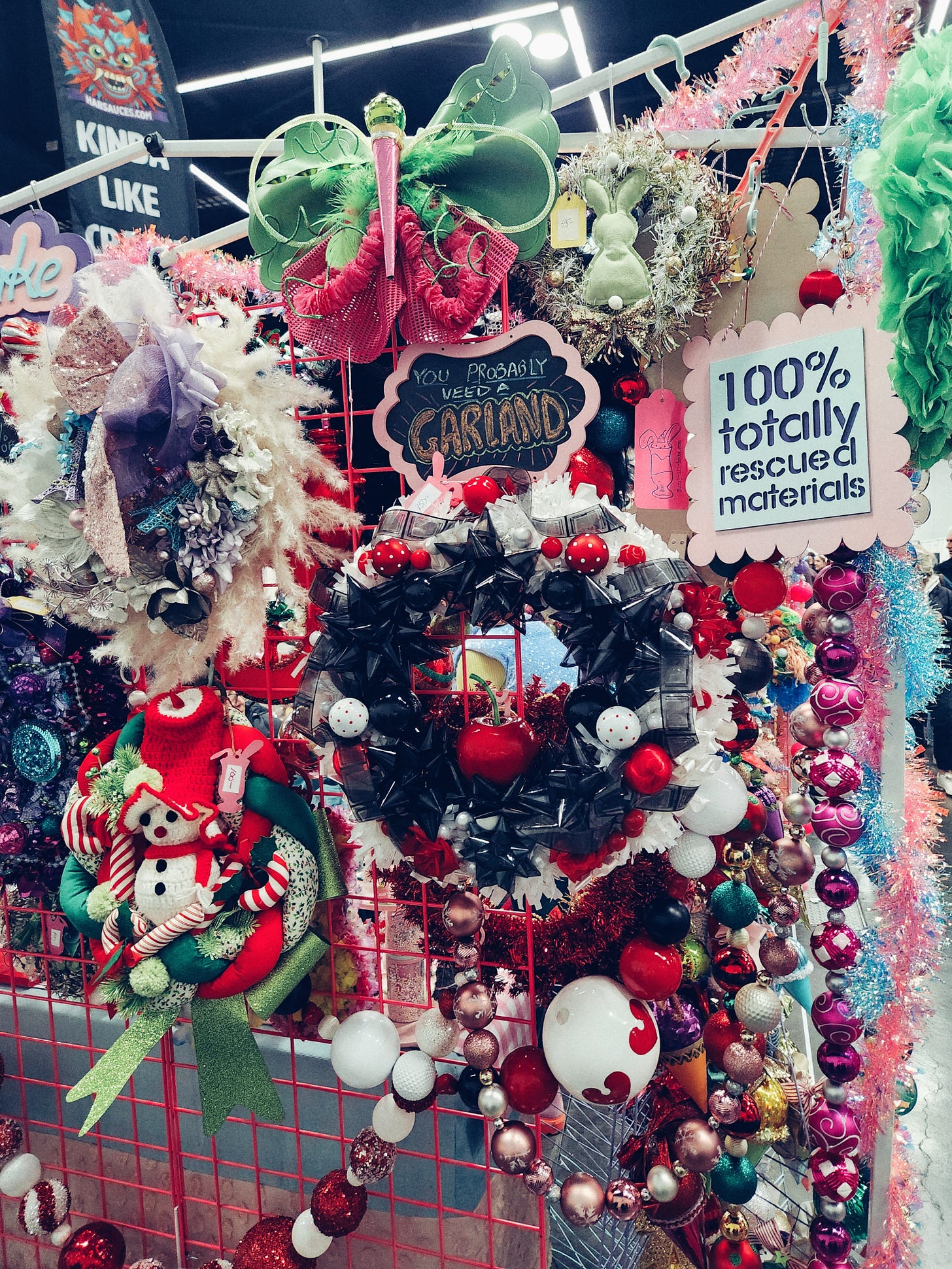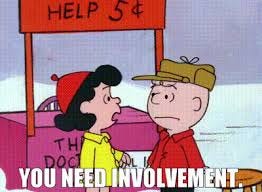Diligence: The most boring virtue of them all
Practicing our scales of rejoicing in the face of Sloth
“The time is noon: When the Spirit must practise his scales of rejoicing” - W.H. Auden
“Let Your work appear to Your servants and Your glory to their children, and let the beauty of the Lord our God rest upon us, and establish the work of our hands for us; yes, establish the work of our hands.” - Psalm 90:16-17
Dear friends,
Happy new year. In my neck of the woods, the sun showed it’s glorious face through the drab, gray rain for the first time yesterday. We’ve had steady rain for about two weeks. You know the kind where the light doesn’t change all day? When you look out the window at 8am and it’s the same scene as 3pm? Yeah, it starts to feel like you’re going nowhere. Although, part of me welcomes the reprieve after a full December. There’s a steady flatness that can feel comforting. In all the bits and pieces I read in December, this one phrase has stuck with me from Amanda Held Opelt’s Instagram page. She shares something her husband told her: “ah, December…the season of self-imposed stress.” I’m sure when my kids are grown I’ll miss some of that “self-imposed stress” but for awhile now, it has felt entirely too much. And when life feels like that, I start flat-lining. Even when I know it’s only for a season.
Of course, there were handfuls of joy throughout the month. Collaborating with Tabitha, John and Mel for the Advent series; bringing my boys to sing Christmas carols at a residential nursing home; celebrating our youngest turning seven; going to see the symphony perform Beethoven’s 9th (more on that in this month’s Apertures). One joy was a trip to Portland’s Crafty Wonderland with my friend, her mom and my mom. Row upon row of booths overflowing with locally made soaps, chocolate, hats, leather goods, bags, cards, calendars, salts…you get the picture. It felt a little nostalgic going with my mom because of the Christmas bazaars (remember THAT word?!) we used to go to together when I was younger.
One booth stopped me in my tracks. The ONE HUNDRED PERCENT RESCUED MATERIALS booth.
I just stared at it. This is ridiculous, I thought. One person’s trash is another person’s treasure, right? But why did it bother me so much? I was already in a season of excess and I was craving simplicity. After sitting with said Bother for a bit, I jotted this down:
Celebrating Christmas as a Christian in America is weird, I'm just gonna say it.
I'm on the teeter-totter and I'm stuck on the ground. The mound of consumerism keeps me down while onslaughting me with ONE HUNDRED PERCENT of how to satisfy every waking thirst and desire for our hungry hearts. You can do the solstice thing, the Santa thing, heck, even the advent thing, and manifest ONE HUNDRED PERCENT of all of them and be left with this gnawing feeling in your stomach. I’m still hungry.
I don't want A HUNDRED PERCENT of that. I want to let Christmas happen to me. I don't want the onslaught, I want the warm and alarming presence of the Seed of David that turns ONE HUNDRED PERCENT of all this stuff into dust. America's wealth is our poverty, and the poor in spirit know where it's at.
I keep waking up grumpy, so my friend tells me to start with gratitude. I do, and the things that are mine to receive appear like immersing a negative in a dark room. The rest falls away.
Find those spaces where you can let Christmas happen to you. Where you can be. And manifest ONE HUNDRED PERCENT of nothing.
If that means sneaking out at midnight on Christmas eve to let those age-old silent night songs wash over you while you sit there in the dark, for some - that's a good place for a seed to crack open.
Ben and I did end up sneaking out to a late Christmas eve service, thanks to my brother-in-law taking the night-shift duty for our sound asleep kids. The service was full of candles, liturgies from the gospel of Luke, and sweeping choral arrangements that broke my heart. It was a space I intentionally sought out so that I could be ministered to. What a grace it is for other church communities to offer consolation in this way.
But as I said at the beginning, it’s January now and I’m still left with this gnawing feeling. I can’t shake it. It’s a desperate need to clear away all the clutter and figure out what it is. It’s the “That is that” of Auden’s For the Time Being poem.
“Well, so that is that. Now we must dismantle the tree,
Putting the decorations back into their cardboard boxes—
Some have got broken—and carrying them up to the attic.
The holly and the mistletoe must be taken down and burnt,
And the children got ready for school. There are enough
Left-overs to do, warmed-up, for the rest of the week—
Not that we have much appetite, having drunk such a lot,
Stayed up so late, attempted—quite unsuccessfully—
To love all our relatives, and in general
Grossly overestimated our powers. Once again
As in previous years we have seen the actual Vision and failed
To do more than entertain it as an agreeable
Possibility, once again we have sent Him away…
In the meantime
There are bills to be paid, machines to keep in repair,
Irregular verbs to learn, the Time Being to redeem
From insignificance. The happy morning is over,
The night of agony still to come; the time is noon:
When the Spirit must practise his scales of rejoicing
Without even a hostile audience, and the Soul endure
A silence that is neither for nor against her faith
That God’s Will be done, that, in spite of her prayers,
God will cheat no one, not even the world of its triumph.”1
What is left after all of that?
Noon.
That flat gray line where the light never changes. I’m looking out the window but what am I looking for?
Recently,
asked her readers what she should write about in her next newsletter. I suggested with telling us (please!) what the antidote to Sloth is. I’ve been dancing around this demon for awhile now. It’s been over a year since I wrote about Acedia. It won’t leave me alone. Sloth is a cardinal sin because “it prevents a person from becoming what God wants her to be and who she truly is.”Miss Prior cheerfully replied with an answer I already had sitting on my bookshelf.
In her book, On Reading Well, she takes us through all the virtues and their literary companions. Cardinal, Theological and Heavenly virtues. I had read through the first two parts but neglected to read through the Heavenly part. You know, those virtues that are a little harder to put your finger on, and therefore, their vices are equally as slippery. Chastity, patience, kindness, humility…I’m sure you know where this is going.
The antidote to Sloth is diligence. “The most boring virtue of them all,” as Miss Prior says. How ironic and cheeky of God - to combat boredom with a boring virtue. Caring helps. Attention helps. Watchfulness helps. One of the most exemplary stories to read about this boring virtue is, of course, Pilgrim’s Progress. And for those of us who need to be reminded, it turns out, diligence isn’t boring it all.
Sloth is a clingy devil, that, as Aquinas said, “is a sorrow for spiritual good.” A wet blanket thrown on the fire of the Spirit within us. Instead of fanning into flame the gift of God within me, I shrug my shoulders with a careless, what’s the use. I’m tempted to doubt the work of my hands.
It’s no coincidence that this clingy little devil has tightened it’s grip around me. I’m in the middle of getting certified as a Spiritual Director, and I am doubting the gift, the charism, placed within me. Is it good? Is it worthy of enjoying and offering to others? Am I worthy to receive such a gift? I am being called to turn away from old coping mechanisms and look deeper, pay attention. I’m being called to lead and walk alongside others who are also flat-lining. I’m being called to set up boundaries for others to show up with their full selves looking for God. My heart is changing and therefore, by body must follow. Of course, Sloth is dripping it’s slimy tendrils around me. Sneaky bastard.
I’ve learned by now to listen to my anger and let God use it to reform me. Maybe that’s why I was grumpy most of December. I wasn’t doing what I really wanted to do. That is it’s own sorting out process, but again, diligence and attention is required.
In his introduction to his theology of ABC’s, Whistling in the Dark, Frederick Buechner writes,
“Faith is a kind of whistling in the dark, it seems to me, and these somewhat antic and most undefinitive definitions are in a way the same thing—an attempt to keep the spirits up while peering through the shadows for some glimmer of Meaning.”
What I love about Buechner’s definitions is his joy, his no-nonsense clarity and grace around things we often get so bogged down in. Take, for instance, boredom:
“As acedia, boredom is one of the Seven Deadly Sins. It deserves the honor. You can be bored by virtually anything if you put your mind to it, or choose not to. You can yawn your way through Don Giovanni or a trip to the Grand Canyon or an afternoon with your dearest friend or a sunset. There are doubtless those who nodded off at the coronation of Napoleon or the trial of Joan of Arc or when Shakespeare appeared at the Globe in Hamlet or Lincoln delivered himself of a few remarks at Gettysburg. The odds are that the Sermon on the Mount had more than a few of the congregation twitchy and glassy-eyed.
To be bored is to turn down cold whatever life happens to be offering you at the moment. It is to cast a jaundiced eye at life in general including most of all your own life. You feel nothing is worth getting excited about because you are yourself not worth getting excited about.
To be bored is a way of making the least of things you often have a sneaking suspicion you need the most.
To be bored to death is a form of suicide.
I know what I need to do and Sloth whispers, sure, go ahead and do it. But it won’t really matter, because you don’t matter. What an insidious lie.
When we let God closer in, those old lies we ate from the Tree of Knowledge and Good and Evil start coming out of the shadows. Just last month, in a particularly low spot, I confessed to some close friends in our church community group, that I don’t get excited about much of anything. In an instant, all ten of them exclaimed, That’s Not True! “You get excited about movies and music, ways God shows up in the world and people’s lives, books (lol), traveling and exploring…”
The lie was: these things about you don’t matter that much because you don’t matter. Sloth manipulates our desires and uses them against us. (Did God really say?)
The truth is: there is safety and joy and meaning in letting the Spirit breathe upon these magnanimous gifts. Sloth is counter balanced by “magnanimity, greatness of soul,” as Karen writes in her chapter on Hope and Cormac McCarthy’s The Road. As I grow into a “greatness of soul” I also have courage and humility in cultivating the good and beautiful work I decided to say yes to. There is also safety and joy in letting our true sorrows be seen. Rather than toss a wet blanket on our grief and the exposure of things we wish nobody knew, the Spirit meets us intimately in the pain and says, I know. You are forgiven, and I love you. Where the Spirit of the Lord is, there is freedom. Where the spirit of the One Against Our Good is, there is smothering and death.
Diligence is only virtuous if it’s pursuing something good. It becomes the vehicle in which my soul becomes magnanimous. It is not measured by it’s outcome but by care and attention. It’s an active exercise in fidelity. “When you are in a tunnel and you see nothing at all, it is advisable to remain near the handrail; otherwise, without noticing it, you will wander off and get turned around.”2 I recognize I’m in new terrain, and yes, possibly even in a tunnel. Things have felt dark for awhile. But I am not without handrails in the presence of the Lord: spiritual disciplines, my tears, the work of my hands, resurrection after dying, the Scriptures, and a long steady patience as I keep going.
Jean-Charles Nault, O.S.B. The Noonday Devil: Acedia, The Unnamed Evil of Our Times









So good, Janell. This especially hit hard: “I know what I need to do and Sloth whispers, sure, go ahead and do it. But it won’t really matter, because you don’t matter.”
I think that lie is so compelling because we believe the opposite of sloth is “productivity” or “achievement.” If we valued diligence, faithfulness and believed it was enough to offer to God, how much freer would we feel?
This is so good.